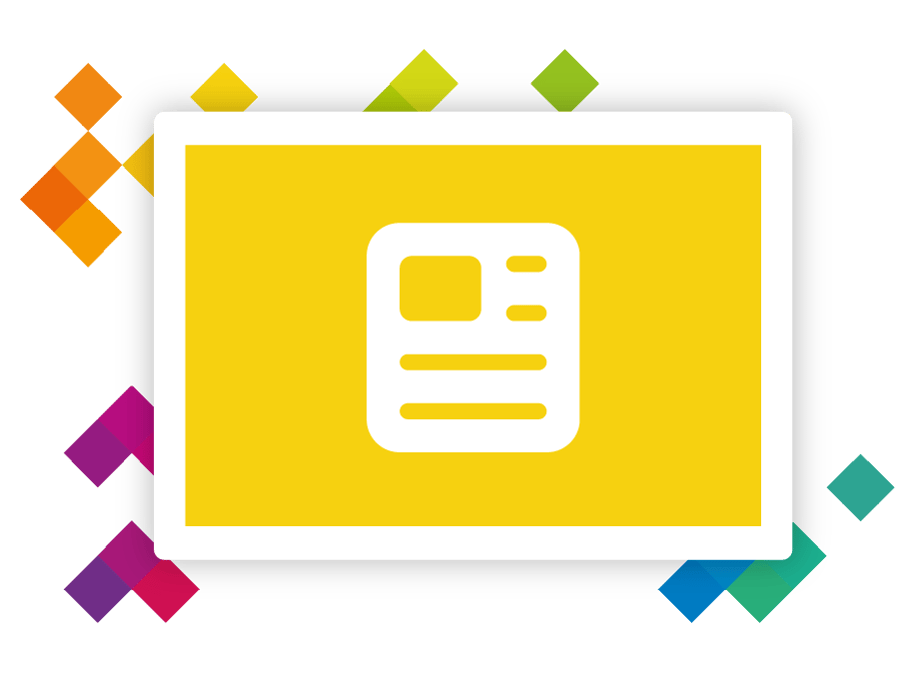Digital transformation is a much-needed next step for the training industry, there’s no doubt about that. It’s essential to streamline and i...
How to collect and prepare apprenticeship data for an Ofsted inspection

Being able to collect and analyse apprenticeship data is essential for providing effective training and demonstrating your impact to Ofsted inspectors.
How to collect and prepare apprenticeship data for an Ofsted inspection
Delivering high-quality learning experiences and successful outcomes are top priorities for all apprenticeship providers. But with limited resources and large caseloads, how can you be sure that your learners are making real progress? And how can you prove it when it comes to your Ofsted inspection?
The answer is to be intentional about the way you collect, interpret and use data within your organisation. It can inform curriculum development and help you monitor progress, ensuring apprentices are receiving the best support for their individual needs.
It should also make it much easier to prepare for your Ofsted inspection, since you'll have greater visibility into your strengths and areas for improvement.
The role of data in Ofsted inspections
When it comes to the education inspection framework, inspectors use validated data before and during an inspection to assess a provider’s performance.
This happens at an overall provider level, but they will also drill down into individual subjects and types of provision. Judgements aren’t made on data alone, but this data will play a major role in assessing the impact and quality of your apprenticeship training.
As Dr. Chris Jones, a former Ofsted HMI Specialist Advisor, explained in a Bud webinar:
“The validated data allows inspectors to come up with questions that will inform them about what they need to do during the inspection. It will tell them about the conversation they would have with the nominee during the inspection planning call.”
Using apprenticeship data to inform curriculums
Ofsted wants to see curriculums that are ambitious, as well as coherently planned and sequenced. Curriculums should be developed to give all learners, particularly the most disadvantaged and those with special educational needs and/or disabilities (SEND), the knowledge they need to succeed.
Data is an integral part of this process. It allows you to build effective curriculums, and continually fine-tune them to suit your apprentices’ needs. There are some fantastic examples in our case studies of how training providers are using their data to ensure curriculums suit different learning styles and capabilities.
When preparing for your Ofsted inspection, make sure you have evidence to show a data-driven approach to curriculum development and a commitment to continuous improvement.
“It’s about what we’re doing in terms of intent and implementation to ensure that learners and apprentices achieve their best. Ofsted wants to see that the experiences you provide are helping learners to make the progress they should,” Dr. Jones adds.
Showing learner knowledge and recall
Preparing data for an Ofsted inspection also means looking at qualitative factors. An inspector will want to understand the progress learners have made and the impact you’re having as a training provider, which often means exploring the depth of knowledge and recall of apprentices.
“In terms of the education inspection framework, the definition of progress is about knowing more and remembering more. It’s about knowledge, skill, application and recall,” Dr. Jones said.
“It’s not about progress through a series of units or test points – they’re easy to demonstrate in a data system. It’s about showing how you know that learners know more and remember more. An inspector will be interested in how teaching is changing and how support patterns are changing, to enable apprentices to achieve targets.”
The importance of reliable data collection
Progress is a crucial part of demonstrating the quality of learning for Ofsted.
Make sure you have a robust initial assessment process to identify existing knowledge, skills and behaviours, and establish the starting point or baseline for each apprentice. From there, you’ll need the right technology to be able to collect data about how each apprentice is progressing through the programme.
This is where Bud’s automatic data collection and reporting tools can be transformative. Bud’s pre-built reporting dashboards allow you to analyse every aspect of your apprenticeship data and give Ofsted inspectors full visibility over learner activity.
This includes:
-
Learner starts
-
Learner engagement and progression
-
Achievers in a month
-
Additional learning support and off-the-job training
It’s straightforward to get that evidence collated amongst the team through Bud. Having all the information at hand in one place is the key element – to be able to pinpoint and not have to go through spreadsheet upon spreadsheet or into a filing system.
Steve Randles, Head of Education and Quality at Skern Training
Driving continuous improvement
Finally, collecting and preparing data for Ofsted isn’t just about having the right systems in place. Ofsted wants to see evidence that you’re actively using this data to improve the standard of your apprenticeship provision.
Many training providers set aside time each month to sit down with their team, analyse apprenticeship data and set actions for the following month. Doing this helps to show Ofsted that you’re not merely collecting data to tick boxes – it’s being used to drive continuous improvement.
“What are you doing with what you know, and how does that impact upon your current learners? Providers may generate, analyse and interpret performance data. But inspectors will always be looking for the curriculum response – your actions as teachers and leaders as a result of that data,” Dr. Jones said.
Checklist: Collecting and preparing data for Ofsted
Here are our top five tips for preparing apprenticeship data for Ofsted.
-
Know what to expect from the inspection planning call. Ofsted will use validated data to inform what they need to do during the inspection.
-
Take a data-driven approach to curriculums. Make sure your curriculums are ambitious, coherently planned and sequenced, and tailored to help apprentices succeed.
-
Don’t forget qualitative data. Ofsted will want to see evidence of learners’ knowledge and recall, and how your training and support patterns are evolving.
-
Put the right technology in place. Set up reporting dashboards to get full visibility over learners and track their progress.
-
Demonstrate the curriculum response. It’s not enough to simply generate data. Show Ofsted how you’re using it to deliver higher quality learning experiences.
Get Ofsted-ready with Bud
Want to go into your next Ofsted inspection with confidence? The best way to do that is with a joined-up apprenticeship management platform like Bud.
Bud is built to support compliance every step of the way, from onboarding to end-point assessment. Our intuitive platform automatically collates evidence of every interaction and learning experience, making it easy to collect, prepare and analyse data for Ofsted.




.png)